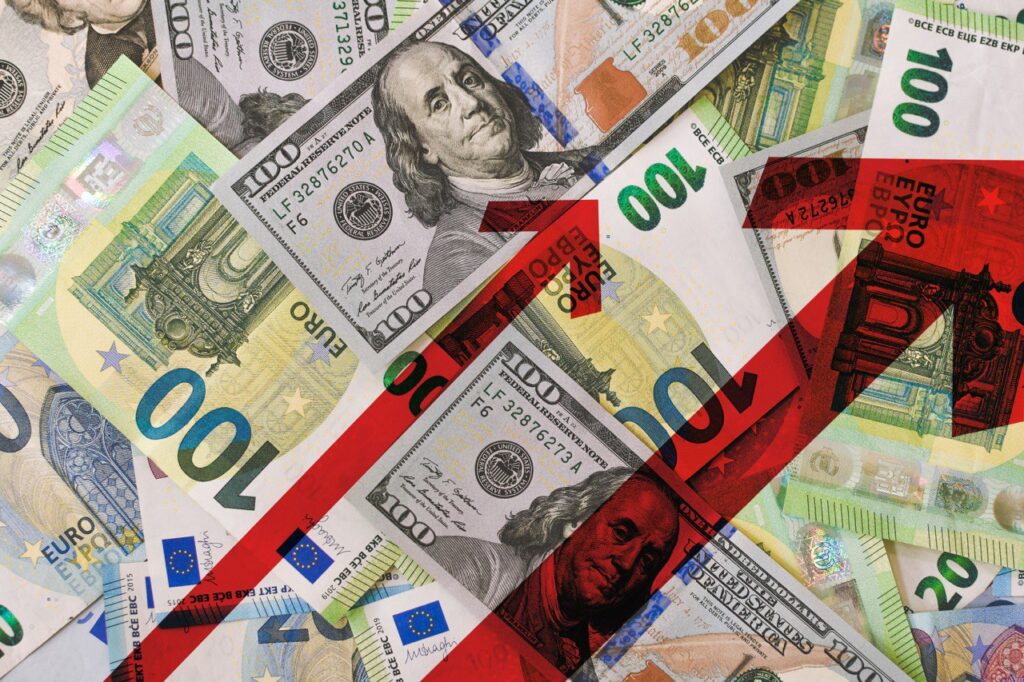Romaan Basit, Ahmadiyya Archive & Research Centre

Throughout history, major world crises have often sparked economic chaos. Take the Treaty of Versailles – it marked the end of a world war, yet lit the fuse for financial turmoil. Germany, drowning in post-war debt and war reparations, plummeted into hyperinflation. Slowly but surely, public trust crumbled in the shattered economy.
The conflict between Iraq and US-led coalitions triggered similar repercussions, namely the Gulf War Recession. Soaring oil prices, with crude oil per barrel doubling in cost, once again gave rise to inflation, sending tremors through the global economy and unsettling financial markets.
Today, we witness situations similar to the above case studies. Covid-19 is still not over (with a new variant on the rise), but the recession it caused is dubbed ‘The Great Lockdown’. Meanwhile, with the Russia-Ukraine war knowing no end, we are left to bear the burden of rising fuel, food, and utility prices – the cost of living biting hard.
As we emerged from the shadows of quarantines and lockdowns, the resurgence of travel meant a greater demand for fuel. The Far East conflict, however, has constrained oil and gas supplies from Russia. The demand is greater than the supply, which is causing the trajectory of prices to creep up slowly, with inflation being a natural outcome.
Ah, the cherished champion of capitalism! What wondrous solution does this revered economic model bring forth to such a problem? Well, to tackle inflation, let’s inflate interest rates. What a fix!
The idea is that when interest rates are high, borrowing money becomes more expensive, which curbs the consumer’s purchasing power. With reduced spending, demand is set to drop, effectively taming inflation and providing a temporary and symptomatic solution. Just in the past month, the interest rate has climbed from 5% to 5.25% – the highest it’s been for 15 years.
This has a direct impact on the general public: repayments for credit cards, bank loans, car finance, etc. are set to increase. About a third of households with mortgages (as per the UK government’s English Housing Survey) will experience a spike in their monthly payments. To put it into perspective, the rise from 5% to 5.25% means those on a typical tracker mortgage would pay about £24 more a month, and those on standard variable rate (SVR) mortgages would face a £15 jump.
So, we observe interest being used as a societal deterrent with evident negative effects – precisely affirming Islam’s stance against it. This view is shared by not only Islam but also ancient philosophers like Plato, Aristotle, Seneca, Cato, and Plutarch, as well as major world religions including Judaism and Christianity.
Hence, capitalism’s flaunted solution appears less promising. While it offers fleeting relief, it often leads to recurrent economic crises, always underlying even the times of apparent remission. It is akin to applying a temporary remedy to a broken bone when a more lasting and effective solution is needed.
The Economic System of Islam was a lecture delivered in 1945 by Hazrat Mirza Bashir-ud-Din Mahmud Ahmadra, the second Khalifa of the Ahmadiyya Muslim Community. In this, he distinctly highlighted Islam as the sole solution to the shortcomings of Capitalism and Communism. Allowing the free market to flourish under state control is what allows Islam to suggest a fine and pragmatic balance between both.
Repeatedly raising interest rates has proven ineffective in addressing the West’s growing economic challenges. It’s now crucial for the world to heed Islam’s longstanding solution. This was emphasised by Wolfgang Schaeuble during a G20 meeting, where major economies gather to shape our global future:
“Islamic finance is growing in importance for the global economy. It is therefore important that international financial institutions consider questions related to integrating Islamic finance into global finance.”
The solution to the world’s economic crises most definitely does not lie in raising interest rates. Nor does it lie in the Communist shackles of state control. Both have been tried and tested; a middle way is required and is available, yet neglected.

